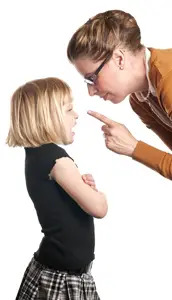 To understand the feelings of isolation, self-doubt, and inadequacy associated with bullying and recognize their horrible ramifications, one only needs to watch the news. One recently highlighted case was a high school student victim of bullying, who ultimately took her own life. Another, brought to light by ABC News, was a member of the Clement family from North Carolina, whose middle school child was being bullied not by her peers, but by her teacher. When Rex Roland, the sixth grade teacher, wrote “minus 20 percent for being a loser” and then underlined loser twice on the student’s paper, parents at the Enka middle school spoke up (as well as nearly 500 commenters on the Internet). Although a few defended Roland’s teaching style as necessary toughness, most advocated for allowing for children’s differing abilities. As for mother Patty Clement, she had her daughter removed from Roland’s class, then sought action from the school district.
To understand the feelings of isolation, self-doubt, and inadequacy associated with bullying and recognize their horrible ramifications, one only needs to watch the news. One recently highlighted case was a high school student victim of bullying, who ultimately took her own life. Another, brought to light by ABC News, was a member of the Clement family from North Carolina, whose middle school child was being bullied not by her peers, but by her teacher. When Rex Roland, the sixth grade teacher, wrote “minus 20 percent for being a loser” and then underlined loser twice on the student’s paper, parents at the Enka middle school spoke up (as well as nearly 500 commenters on the Internet). Although a few defended Roland’s teaching style as necessary toughness, most advocated for allowing for children’s differing abilities. As for mother Patty Clement, she had her daughter removed from Roland’s class, then sought action from the school district.
How common is teacher bullying?
At a National Bullying Convention held in 2005, it was found that 12 percent of students have been bullied by peers and 2 percent by teachers. In another poll, by bullyfreeworld.com, 25 percent of teachers admitted to engaging in bullying to some degree, and 2 percent said they had done it on a regular basis. This site defines bullying as “a pattern of conduct that harms, threatens, humiliates or induces fear/emotional distress.” Bullying also includes abuses of power and negative opinions expressed in public.
Manya Slater, LCSW, owner of a private clinic in Forest Hills, notes that numbers may be even higher, since teachers are authority figures, and children often hesitate to turn them in, so incidents go unreported. Instead, a child might avoid school or manifest behavior patterns like vague sickness and being unusually clingy. Slater believes this is a very serious issue, and a misuse of the power-authority dynamic.
What constitutes teacher bullying?
While a strict teacher exhibits gruffness to a whole class, bullies usually tend to single out their victims. They might use derogatory terms like “loser,” as Roland did, or stand a student up in front of the classroom and say, “You’re so dumb. You’ll never pass. Why did you even take this course?” The tragedy of teacher bullying is that the very person who is meant to encourage and inspire students, instead labels or debases them. The very person who should guide and be a role model for success ends up instead punishing those children who are not successful.
While bullying by teachers is less physical than bullying by peers, it can be just as hurtful. Teacher bullying creates confusion, self-doubt, and concerns about academic and/or social competence. Professionals like Alan McEvoy, Ph.D, who wrote Teachers Who Bully Students: Patterns and Policy Implications, put teacher bullying in the realm of sexual harassment, stalking, and hate crimes. Targets are often chosen on the basis of apparent vulnerability, whether physical, social, or academic in nature. The victims in turn feel helpless, trapped, and inadequate, and fear retaliation (in the form of their grade).
“Teachers who bully feel their abusive conduct is justified, and will claim provocation by their targets,” McEvoy says. “They will often discuss their behavior as motivation…They also disguise abuse as a disciplinary response to unacceptable behavior by the target. The target, however, is subjected to deliberate humiliation that can never serve a legitimate educational purpose.”
Sometimes the bullying behavior is not so overt, such as when one teacher tells another over lunch, “Have you had Billy X in your class yet? That kid is such a $%A#. He distracts my whole class.” A parent coordinator at PS 107 in Brooklyn says that if she were to overhear a teacher badmouthing a kid to another, she would notify the principal, and he would follow up. Her PreK-5 school uses a team approach to problem solving, involving parent, child, and several members of the school administration in the process.
How should a parent best handle a child’s accusation?
Manya Slater, a child behavior expert, recommends parents explore the situation fully with the child before taking action. “Be an active listener and hear the whole story before you react,” Slater says. She reminds parents to praise the child for having the courage to speak up, and to ask the child (depending on age) if she wants to solve the problem herself or have you step in.
Slater recommends scheduling a face-to-face with the teacher first. Meeting privately will give parents helpful hints about the teacher’s personality and behavior. “Sometimes, alerting the teacher can be enough to get them to change their behavior,” she says.
If things don’t get resolved, take further action: explore school, regional, and chancellor policies on teacher behavior; alert school personnel, especially clinicians and guidance counselors; use the PTA as a resource since members would likely know the history of a specific teacher.
|
Antibullying Tips for Parents and Education Professionals New and stricter bullying policies, including special staff training and the institution of prevention/intervention programs, are in order, according to Dr. McEvoy. Sharing conflict resolution tactics is a first step. The program “Don’t Laugh at Me” – curricula inspired by a Peter Yarrow song and aimed at creating an inclusive, compassionate, ridicule-free classroom – is another good resource (see operationrespect.org).
Tips for Parents and Families • Keep a log of the child’s claims and conversations • Watch for changes in the child’s behavior, including stomachaches, anger, and isolation • Follow through whenever a child says he/she was picked on • Get details about a specific remark, particularly if it was made in front of the classroom • Arrange a meeting with the teacher and any others involved; write them letters as well • Plan on taking things to higher authorities (even the chancellor’s office) • Investigate claims: your child might be embellishing or exaggerating • Use school resources (guidance, parent coordinator, principal/assistant principal) to help you explore and your child to heal • Don’t let your own victimization issues get in the way of parenting
Tips for Teachers and School Administrators • Ensure teachers counsel all discipline issues in private meetings, and not in public • Make administrators aware of single incidents as well as patterns of teacher behavior • Devise ways for staff to alert one another should they see a teacher lapse into angry or hurtful behavior • Survey staff and students periodically to ascertain the school’s atmosphere • Make conflict resolution programs available to both staff members and school families • Institute a zero tolerance policy for any kind of harassment or hate crime • Keep in mind that a hostile climate is counterproductive to academic achievement
|




















